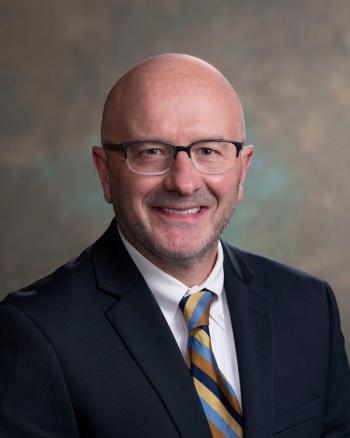
Delighting payers and patients with turn-key behavioral health solutions
New technology can be the key to bringing behavioral healthcare to practices already struggling.
The Greek philosopher Heraclitus once noted that “Change is the only true constant.”It is safe to say that the expectations of payers are changing, and those expectations will most certainly impact the revenue of and for your medical practice.
Here’s one example. We’ve all read about, and seen firsthand, the upwards trend in mental health issues during the pandemic.There has been a dramatic increase in substance abuse, ongoing challenges of pain management and prescription drug abuse, especially for people who may have been afraid to venture out for treatment or who were unable to get the requisite surgeries they were anticipating.
Employers, the ultimate payers, have clearly indicated that getting adequate behavioral health resources for their workforce is a priority. However, amidst a serious shortage of behavioral health therapists available to treat these patients, how will this gap be bridged? Perhaps the pandemic that created the problem can also deliver the solution?
At this point, the eyes of payers and patients have both turned to the doctor as the solution.Physicians although overburdened with paperwork and the stress of seeing even more patients in a digital world, are being asked to now screen for behavioral health issues during their already rushed office visits.It is assumed that they can observe potentially problematic behaviors or the subtle signs of psycho-social determinants of healthcare outcomes.
Given the length of time for the average office visit and the lack of resources that physicians have to support them in this process, it’s not likely or possible that the medical practice can take on this task.Even though physicians will agree that patients would benefit and their outcomes will most certainly improve, adding another item to an otherwise full plate will be difficult.
Payers, however, believe that addressing the underlying psycho-social determinants of health is a real differentiator that can drive tremendous outcomes. It addresses a multitude of issues that drive claim volatility and create unnecessary expenses and poor clinical outcomes. Any practice that offers a solution to address the entire bio-psycho-social aspect of the patient will certainly be viewed in a more attractive light.
So, if both physicians and payers agree that addressing the entire person through a bio-psycho-social lens is a good idea, but practices are overburdened already…what is the solution?Here is where the pandemic created an opportunity for a solution to appear.In the middle of a global pandemic, when the world was shut down, it became mainstream for the doctor-patient relationship to shift its location from the bedside to the digital arena.
As more and more medical services were offered remotely during the pandemic, mental health was included in those service offerings. Patients and therapists who once thought therapy could only be effective if delivered in person, changed their opinions when they experienced remote counseling sessions. Remote therapy solves the problems of access and provides an opportunity to screen patients as well.
As the scientific understanding of how the brain works is further elucidated, we have seen the advent of new options for digital engagement such as virtual reality.Virtual reality is exceptional at giving patients an immersive experience into another realm of reality that helps to develop neural pathways that reduce pain, depression and anxiety and promote increased levels of patient resiliency. Studies show that patients experience permanent, long-term relief from these and other symptoms without drugs or surgery. This technology offers a new way to achieve faster, permanent relief in a patient-centric digital fashion.
The most efficacious virtual reality treatments utilize behavioral health coaching by qualified remote therapists teaching mindfulness and stress management.As important as the outcomes, there are no extended waiting periods for months for an opening in a therapists’ schedule.The almost instant access to a behavioral therapist and a virtual reality platform provides an answer to the providers and the payers issues in near real-time fashion.
Screening protocols easily identify the patients who are the right candidates for this virtual therapy, including those with underlying social or psychological underpinnings.The ability to outsource these screening protocols to the behavioral health providers lowers the barrier of entry to make this process easy for the patient and the provider. After an easy handoff, the program begins for the patient and then weekly reports will go to the physician on the patient’s progress.
So, if change is constant, it is the role of the astute physician to constantly change and embrace new methods by which to engage their patients, expand their services and develop new synergies in clinical care to provide holistic patient care and stand out in a crowded field with new and effective solutions to serious, prevalent problems.
Gerry Stanley, M.D., is senior vice president and chief medical officer (CFO) for Harvard MedTech.He received his medical degree from Creighton University School of Medicine and was a primary care physician for more than 10 years before moving on to physician executive positions. For more information, visit
Newsletter
Optimize your practice with the Physicians Practice newsletter, offering management pearls, leadership tips, and business strategies tailored for practice administrators and physicians of any specialty.






